How “holy” is Jerusalem…really? Judaism, Christianity and Islam each have their claim
In part one of this 3-part series, we will explore Jerusalem as the Jewish Holy City
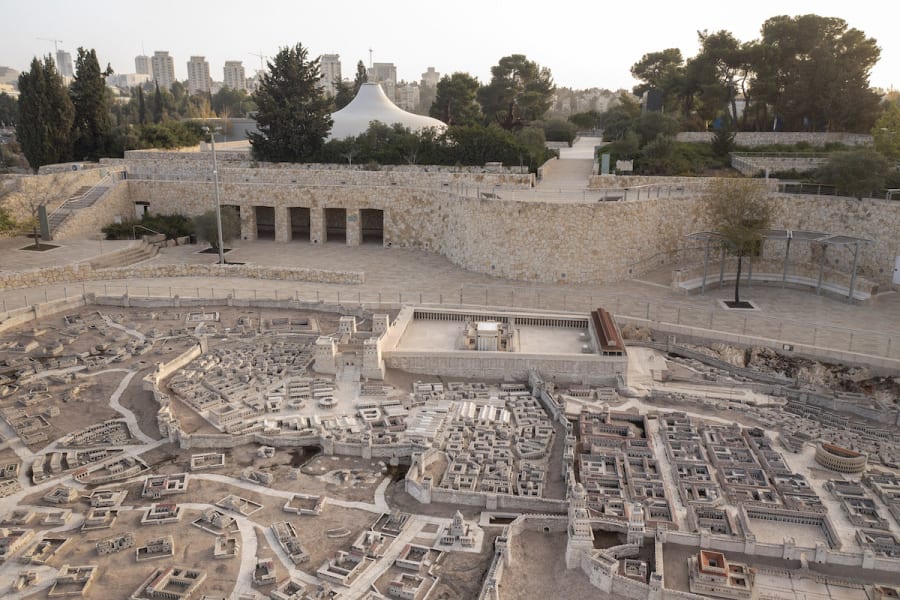
We often refer to Jerusalem as “The Holy City” and that it’s holy for three major world religions: Judaism, Christianity and Islam. But how true is that statement? Is it equally holy in all three religions, or do some of these religions see it as more holy than the others?
Because each one of these religions has ruled over Jerusalem at different points in history, we can get some clue as to how they view Jerusalem. In this three-part series, we will feature each of the three religions, starting with Judaism.
To say that Judaism was the first religion to claim Jerusalem as its own is only partly true. A biblical faith in the God of Israel and the temple service of King Solomon came first – and these three religions claim ownership of the Old Testament, Solomon’s temple and the prophets.
Let’s start from the biblical beginning – when the children of Israel were on their way to Israel through the desert and none of them had any idea about Jerusalem being holier than any other city.
When Joshua entered the land, Jerusalem was known as Jebus, and it was just one of many Canaanite cities they had to conquer. Tradition says that Mount Moriah, the mountain on which Abraham almost sacrificed Isaac, is that little hill right next to Jebus, and King Melchizedek of Shalem – who blessed Abraham – was probably from Jerusalem. Besides that, it held no special significance. Throughout the Book of Deuteronomy, God mentions “the place I will choose,” but no one knew at this point that it was Jerusalem.
In fact, until today the Samaritans insist that God was referring to Mount Gerizim, and not Jerusalem. For example, in the Book of Deuteronomy 12:5-6, God says: “But you are to seek the place the Lord your God will choose from among all your tribes to put His Name there for his dwelling. To that place you must go; there bring your burnt offerings and sacrifices, your tithes and special gifts, what you have vowed to give and your freewill offerings, and the firstborn of your herds and flocks.” We now know that God was referring to Jerusalem but it would take many years until that became clear.
In the Book of Joshua 15:63, it states: “Judah could not dislodge the Jebusites, who were living in Jerusalem; to this day the Jebusites live there with the people of Judah.” However, in Judges 1:8, we read: “The men of Judah attacked Jerusalem also and took it. They put the city to the sword and set it on fire.” It doesn’t seem this was a lasting occupation, though. We have to assume that it was a limited raid, and that the Jebusites went back, because at the end of the Book of Judges we read this verse: “When they were near Jebus and the day was almost gone, the servant said to his master, ‘Come, let’s stop at this city of the Jebusites and spend the night.’ His master replied, ‘No. We won’t go into any city whose people are not Israelites. We will go on to Gibeah.’” (Judges 19:11-12). Again, Jerusalem is an insignificant Gentile city that the Jews are skipping over.
This would all change with King David.
David wasn’t the founder of Jerusalem. He didn’t even declare it a holy city. But he did make it his capital. After the death of Saul’s son Ish-Boshet, the elders of Israel came and asked David to rule over them. The first thing he did was to move the capital from Hebron, the capital of the tribe of Judah, and conquer Jerusalem, making it his new capital.
Why? Because it was the perfect place for a capital. In the same way that Washington, D.C. is the capital of the United States – i.e., Washington doesn’t belong to any specific state and is, therefore, considered to be federal territory – Jerusalem held a similar status.
It was on the border between Judah (David’s tribe) and Benjamin (Saul’s tribe), and there were no previous Judahite or Benjaminite inhabitants. David conquered Jerusalem and made it a federal capital that could be accepted by the other tribes. In this way, David created a unifying Israeli sense of belonging. The fact that there was a water source right next to it (the Gihon Spring) and that the mountain on which Abraham (according to tradition) almost sacrificed Isaac was right next to Jerusalem likely also played a role in the decision, although we can only speculate.
It’s not clear exactly when God intervened directly for the first time, but at some point He revealed that this was the location He was referring to in Deuteronomy all along. “For the Lord has chosen Zion, He has desired it for His dwelling, saying, ‘This is my resting place for ever and ever; here I will sit enthroned, for I have desired it.’” (Psalm 132:13-14)
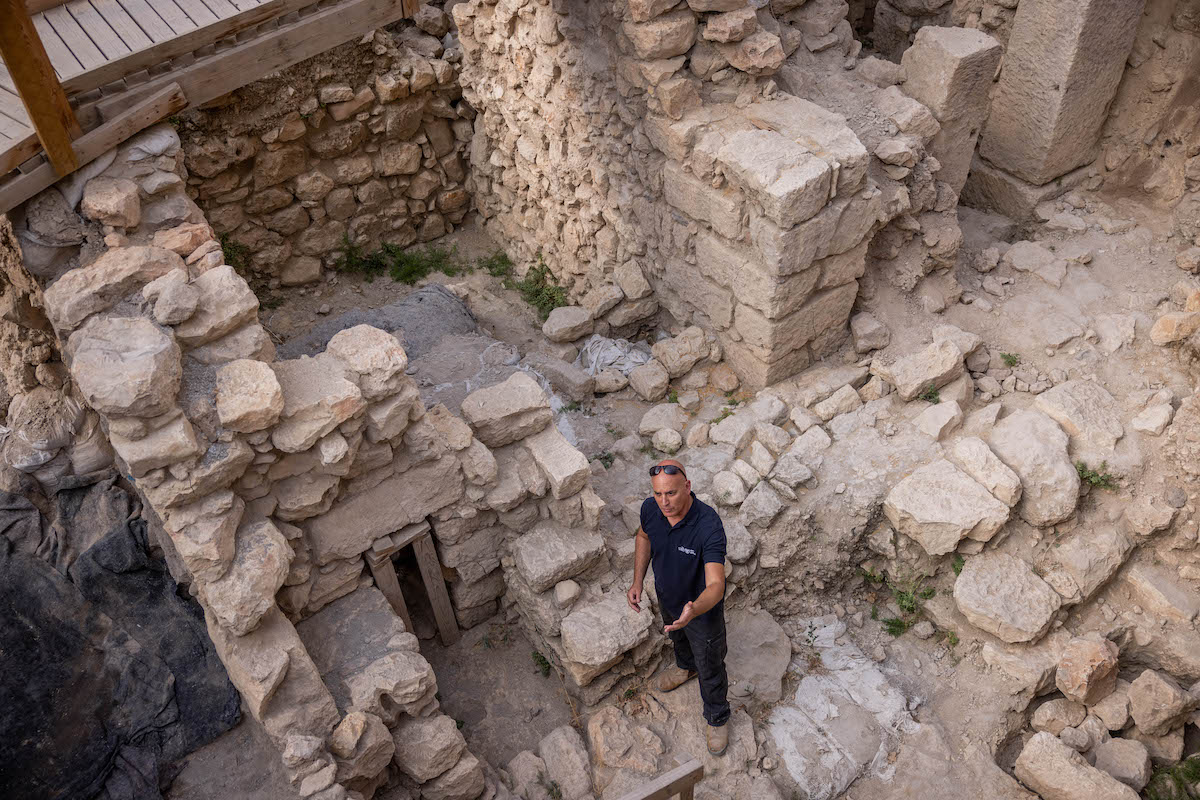
The Temple Mount, on which the temple was eventually built was, at this point, outside the city. Only during the rule of King Solomon was it built, and the city expanded to include it. This temple, as well as the law from Deuteronomy which stated this was the only place to bring sacrifices, are what made Jerusalem holy for the first time.
Even after Solomon’s death, when the northern Kingdom of Israel split away from the southern Kingdom of Judah, Jerusalem remained the capital and the holy city in Judah until the Babylonian captivity of 586 B.C. This is when we start seeing the longing to return to Jerusalem: “If I forget you, Jerusalem, may my right hand forget its skill. May my tongue cling to the roof of my mouth if I do not remember you, if I do not consider Jerusalem my highest joy.” (Psalm 137:5-6)
When Cyrus the Great, King of Persia, conquered Babylon and allowed the Jews to come back home and rebuild the temple, Jerusalem was the natural capital of Judah. First, under Persian rule, then under Alexander the Great and the Hellenist kingdoms which appeared after his death, and eventually under the independent Hasmonean Jewish kingdom.
When the Romans arrived, they chose Caesarea as their local capital because of its Gentile population, easy access to the sea and communications with Rome. They couldn’t have cared less about Jerusalem. After all, Jerusalem was the Jewish people’s capital. Everyone knew that. It was a holy city, but only for the Jews.
When Jesus speaks of Jerusalem, He cries over its fate, which He knows will occur just 40 years after His death, with the destruction of the Second Temple in 70 A.D. He is brought there to be crucified because a prophet can only be killed in Jerusalem. He is the Jewish Messiah, Jerusalem is where God, and actually He, decided to place the temple. And it’s the spot He chooses to be crucified and buried and resurrected in. So Jesus’ ministry and work in Jerusalem is mainly because it is a holy city – the center, and the capital of the Jewish people.
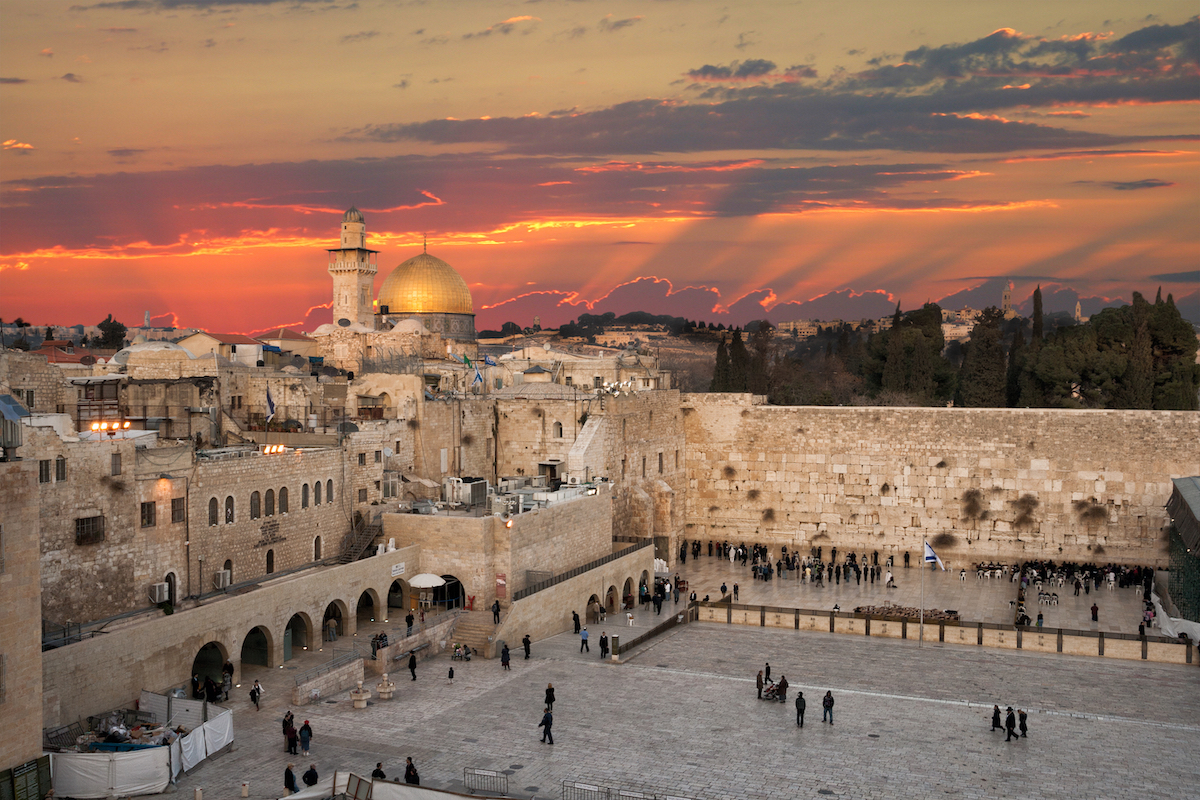
When the Romans destroyed Jerusalem in 70 A.D. and then demolished it completely in 132 A.D., they built a pagan city, Aelia Capitolina, on the ruins of Jerusalem. They renamed Israel to Palestine and persecuted both Jews and Christians. When the Romans became Christians 300 years later, they renamed the city to Jerusalem once again and built churches, but the persecutions of Jews didn’t stop.
Ever since the destruction of Jewish sovereignty of Jerusalem, the Jews have constantly prayed to God for the return to Zion. It’s been in all Jewish prayer books for thousands of years.
In the seventh century, Muslims arrived. With the history of David and Solomon in the back of their minds, Muslims allowed Jews back into the city and announced: ‘Great News! We believe in the God of Israel too, just like you. He has sent a new prophet, Muhammed, and now we will rebuild the temple! Only we will call it a mosque and we won’t follow the sacrifices of the Torah, because God has told Muhammed about these five prayers we are supposed to do instead.’ (Paraphrase is mine).
The Jews were allowed to live in Jerusalem again and build synagogues, but they were a beaten and subjected people, unless they converted to Islam. When the crusaders arrived in 1099, they killed all Jewish and Muslim inhabitants of Jerusalem.
Nevertheless, the longing for Jerusalem never ceased, and the wish for a reestablished kingdom with Jerusalem as its capital has always been there. As Muslims retook Jerusalem in 1187 – and was then occupied by the Mamluks and then the Ottomans – Jews remained a minority in the city which used to be their own.
Jews were banned from the Temple Mount but because they were allowed outside, they’d pray alongside the wall, the only remnant of the temple. In the 16th century, Sultan Suleiman was annoyed by this and assigned a specific place for Jews to pray on the western side of the temple wall . Since then, this Western Wall has been the central and most holy place for Judaism.
From the mid-1800s, Jews became the majority in Jerusalem and, as new neighborhoods were built outside the city walls, many of them remained predominantly Jewish. The Zionist immigration waves began as early as the 1880s, doubling and tripling the Jewish population. Everyone had the same dream – an independent Israel with Jerusalem as its capital. Not a religious pilgrimage site but an actual functional capital.
Would that dream ever be achieved?
Following Israel’s War of Independence in 1948, the eastern half of Jerusalem fell under Jordanian rule, including all the holy places of all three religions, with Israel taking the western part, along with the new neighborhoods. In the Old City, the Jewish holy places were desecrated, synagogues were demolished, Jewish inhabitants were expelled and the Western Wall became a garbage dump.
For the first time in many centuries, Jews were again banned from visiting their holy places. Despite this, western Jerusalem was defined as the capital of Israel, and the Knesset and all government offices were established there. As soon as the eastern part of the city fell into Israel’s hands during the Six-day War of 1967, Jerusalem was finally, for the first time since 70 A.D., the capital of the Jewish people.
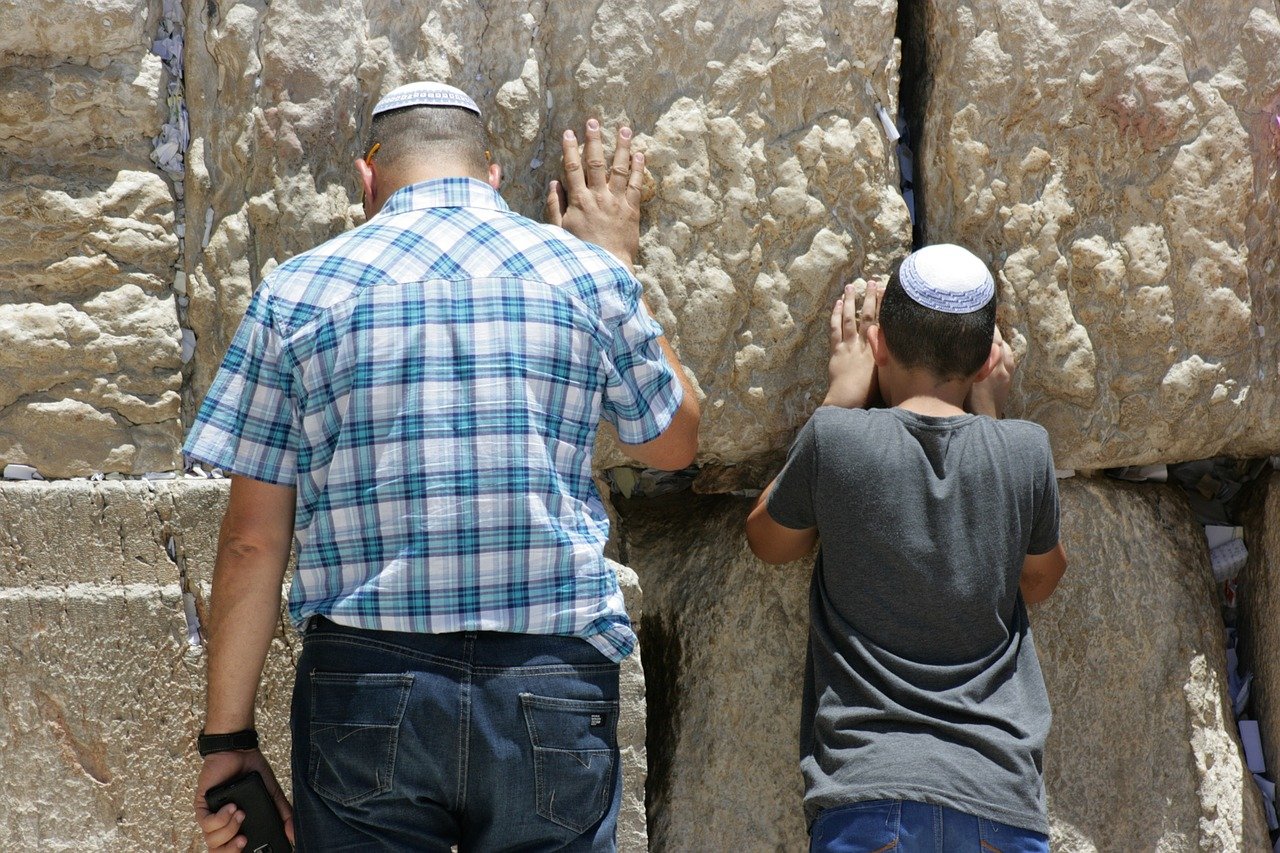
For Jews, Jerusalem is and has always been so much more than just a holy city for pilgrimage. It’s our capital, our history and our future. Since 70 A.D., the Jews have said “Next Year in Jerusalem” twice every year, on Passover and Yom Kippur. For the many centuries that Jerusalem was under Gentile rule, Jews continued praying and wishing for Jerusalem to become our capital once again. When we look at how the Gentiles have ruled it, and then not cared about it, and kept it as a side-note or neglected corner of their empire, it’s both insulting and frustrating. It’s like when a bully steals your favorite toy, only to neglect it and not care about it, just for the spite of it.
Now that it is ours again, it’s not just a holy city and not just a spot for pilgrimage. It is a capital. And it’s flourishing. With almost a million inhabitants, which is about 10% of all Israelis, it’s Israel’s largest city and its municipal borders take up 48.323 square miles. For comparison, the walls of the Old City encompass an area of 0.35 square miles. The original Jerusalem of King David was 0.02 square miles.
In part two of the series, we will take a closer look at the Christian holiness of Jerusalem from the time of Jesus and onward. Who were the Christian rulers of Jerusalem? Should Bible-believing Christians demand that Jerusalem be under Christian rule?
Pray for the peace of Jerusalem. May those who love you be secure. May there be peace within your walls and security within your citadels. (Psalm 122:6-7)
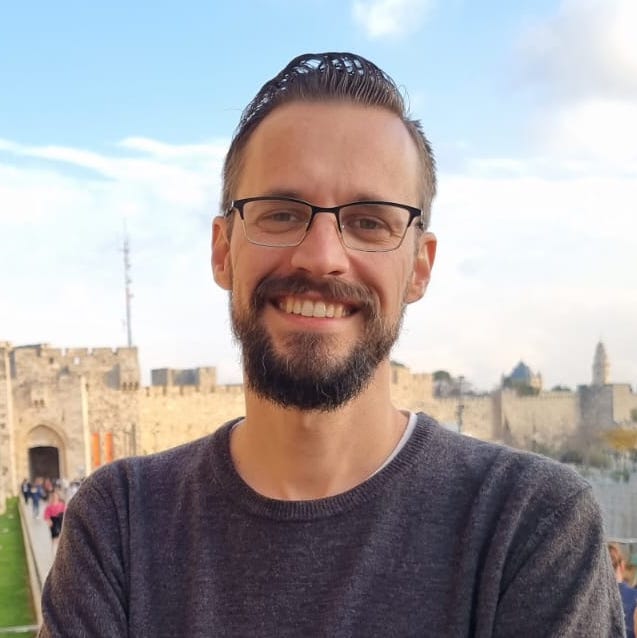
Tuvia is a Jewish history nerd who lives in Jerusalem and believes in Jesus. He writes articles and stories about Jewish and Christian history. His website is www.tuviapollack.com














